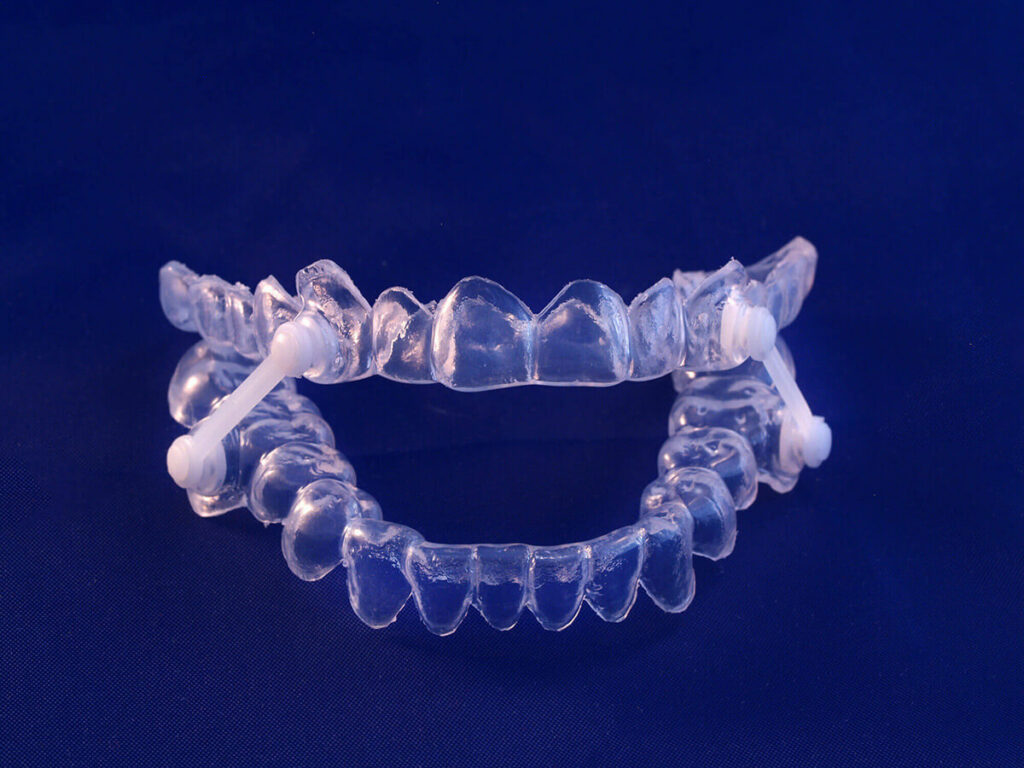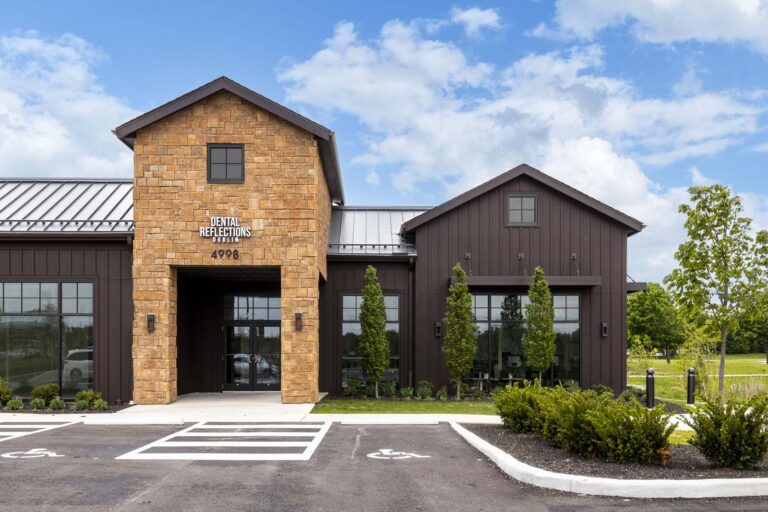Sleep Apnea
Sleep apnea is a serious condition that can lead to other health problems. We offer effective treatment options to improve your health.
Sleep Apnea Treatment
Sleep apnea is defined as a condition that causes you to experience frequent and recurring shortness of breath while sleeping. It can be caused by the individual’s throat becoming overly relaxed while sleeping which blocks the airways and prevents normal breathing. This is referred to as obstructive sleep apnea (OSA).
This type of sleep apnea occurs when the back of the throat muscles relax. These muscles support the soft palate, the triangular portion of tissue called the uvula that hangs from the soft palate, the tonsils, the side walls of the throat, and the tongue.
When muscles relax, the airway narrows or closes during inhalation. You cannot get enough air, which can drop your blood oxygen level. Your brain detects that you are unable to breathe and briefly awakens you to reopen your airway. This awakening is typically so brief that it is forgotten.
Signs of sleep apnea include
- poor sleeping habits
- frequent sore throats
- recurring headaches
- a general inability to get a restful night’s sleep
We’re concerned about the overall health of our patients, including their sleep health. Many people suffer needlessly from dangerous sleep disruptive disorders that keep them from getting enough oxygen at night. The risk of a heart attack is 23 times more likely than average with a sleep disorder, and 92% of stroke victims live unknowingly with this condition before an attack. Our training allows us to offer you education and treatment surrounding sleep health most simply and cost-effectively possible.
Schedule an Appointment Online
-
What is sleep apnea?
Sleep Apnea is a sleep disorder that repeatedly causes a person’s breathing to start and stop during sleep. This results in lower-quality sleep and can lead to serious health consequences due to a decrease in the body’s oxygen supply. There are three main types of sleep apnea:
- Obstructive sleep apnea is the most common form and is caused by a person’s throat becoming overly relaxed while sleeping, blocking the airways and preventing normal breathing.
- Central sleep apnea is a rare form that occurs when the brain fails to signal the breathing muscles, causing a short period when a person doesn’t breathe.
- Complex sleep apnea syndrome, or treatment-emergent central sleep apnea, occurs when someone has obstructive and central sleep apnea.
Though this condition is usually associated with loud and intense snoring, snoring alone doesn’t necessarily mean someone has sleep apnea. Being overweight, excessive alcohol consumption, drug use, and genetics can all cause sleep apnea. People with a family history of sleep apnea are more likely to suffer from the condition.
-
How is sleep apnea diagnosed?
Sleep apnea is typically diagnosed through a polysomnogram or a sleep study. This test can be conducted at home or in a sleep disorder center. The test records various activities while you sleep, including brain activity, breathing, and oxygen levels. It also measures the duration of each sleep stage, the frequency of waking up during the night, and body position, as well as detecting snoring or if you stop breathing.
After the sleep study, a specialist will analyze the data from your test to diagnose if a sleep disorder is present and recommend the appropriate treatment. In the case of obstructive sleep apnea, a dentist trained in sleep medicine can work with the specialist to treat it with oral appliance therapy. Our office can provide a consultation if you want an oral appliance for sleep apnea.
-
What are the symptoms of sleep apnea?
The most common symptoms of sleep apnea are listed below. Just because you have one, or a few of these, doesn’t mean you have sleep apnea. Check with your doctor to be certain.
- Very loud snoring
- Sleepiness and loss of energy when awake
- Painful headaches
- Restless sleep
- Insomnia and recurrent awakenings
- Waking up with a dry or sore throat
- Waking up in the night with gasping or choking sensations
- Sudden mood changes
- Poor concentration
- Going to the bathroom frequently at night
-
How is sleep apnea treated?
The treatment of snoring and obstructive sleep apnea can involve various methods such as surgery, CPAP or BiPAP machines, or oral appliance therapy. Among these options, oral appliances are the least invasive and can be a good choice for mild to moderate cases of OSA. These appliances can help hold the jaw precisely throughout the night, allowing for critical oxygen flow and ensuring comfort.
It’s essential to consult with your sleep physician before deciding on any treatment. Once a treatment plan is chosen, we can support your efforts critically. If oral appliance therapy is selected, it’s essential that the correct method and positioning are designed to maintain your airway precisely.
Questions About Sleep Apnea?
If you have any questions about sleep apnea or for a consultation—contact us or schedule your appointment using the link below, or explore the numerous other dental services we offer.

